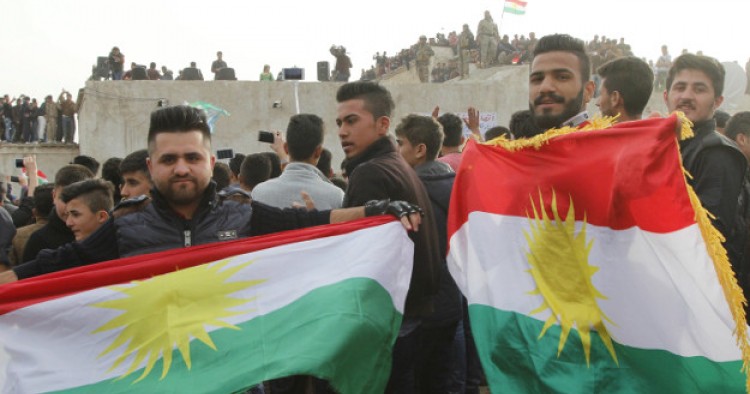Iran’s Foreign Ministry on Monday criticized the hoisting of the Kurdistan Regional Government (K.R.G.) flags over government buildings in the Iraqi city of Kirkuk and warned that the move could exacerbate political tensions in the country, Iran’s Tasnim News Agency reports. “The Islamic Republic of Iran’s principled position is to support Iraq’s territorial integrity and sovereignty and to emphasize the commitment of all parties to the country's constitution and to the resolution of differences through dialogue and legal solutions,” Foreign Ministry Spokesman Bahram Ghassemi said in a statement. “Therefore, we consider raising any flag other than the Iraqi flag in Kirkuk, which is governed by the federal government according to this country’s [Iraq’s] constitution, a move which violates the constitution and causes tension,” he cautioned.
Comment: The raising of the K.R.G. flags in Kirkuk has triggered a new tension between Baghdad and the KRG. On Saturday, the Iraqi parliament rejected a decision to hoist the K.R.G. flag alongside the Iraqi national flag on public institutions in Kirkuk. Kurdish politicians reportedly boycotted the vote. The issue highlights rising political tension in Iraq between different factions as the Islamic State – the common threat – is on the verge of defeat. And as Ghassemi’s statement indicates, Iran – which is the most influential foreign player in the Iraqi security and political spheres and commands an extensive network of Shiite militias in Iraq – is also openly interfering in Iraq’s domestic issues.
Last week, a prominent Iran-backed Iraqi militia commander warned peshmerga forces loyal to the K.R.G. to withdraw from the northern Iraqi town of Sinjar and stressed that the Popular Mobilization Forces (P.M.F.) will not allow any parts of Nineveh Province to be incorporated into the Iraqi Kurdistan Region. “Popular Mobilization Forces will spare no effort to confront the expansionist agenda of Masoud Barzani, the head of Iraqi Kurdistan Region, in Nineveh Province and other Iraqi areas,” Jawad al-Talibawi, a spokesman for the armed wing of Asaib Ahl al-Haq, said in an exclusive interview with Iran’s Fars News Agency.
The Middle East Institute (MEI) is an independent, non-partisan, non-for-profit, educational organization. It does not engage in advocacy and its scholars’ opinions are their own. MEI welcomes financial donations, but retains sole editorial control over its work and its publications reflect only the authors’ views. For a listing of MEI donors, please click here.













